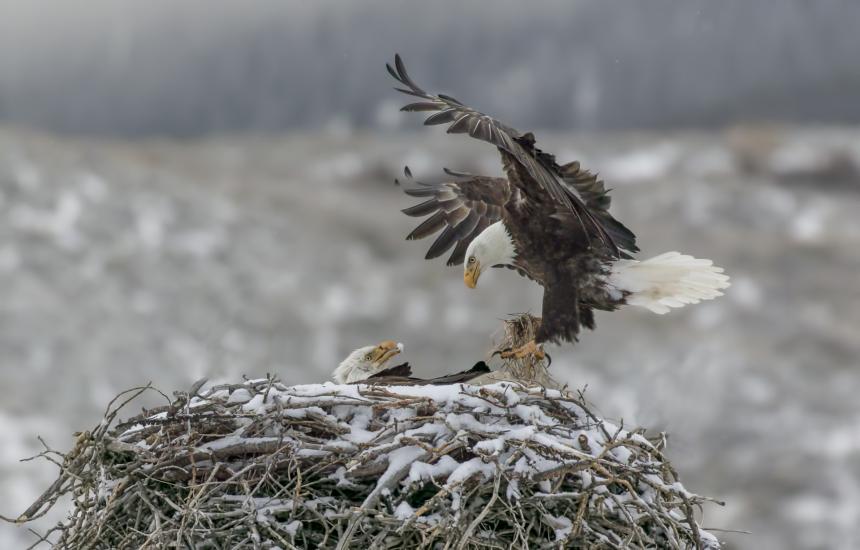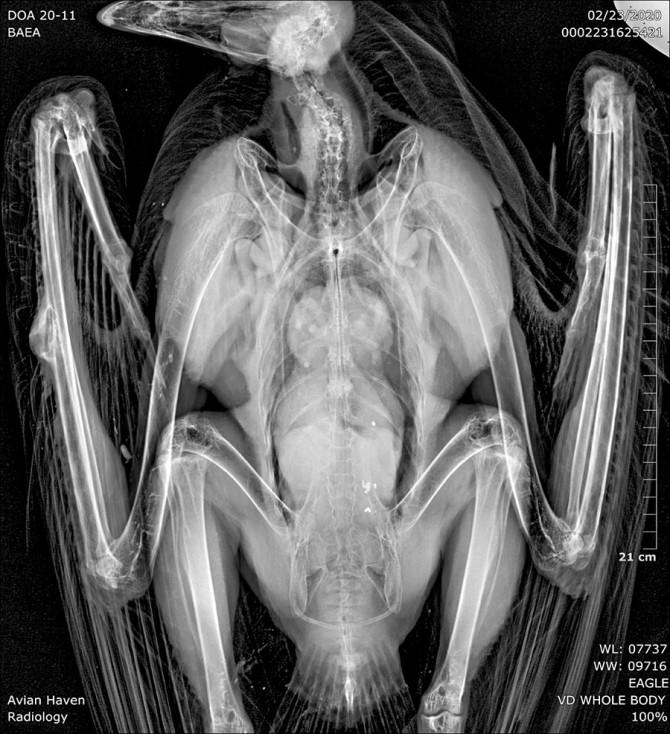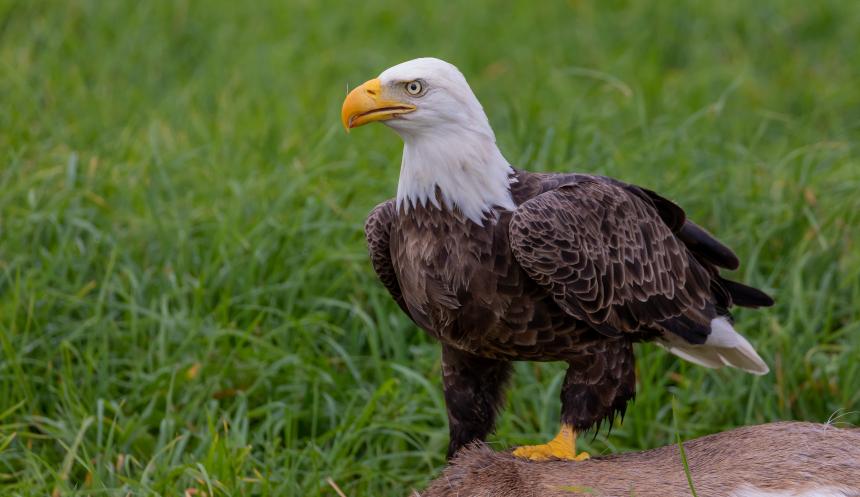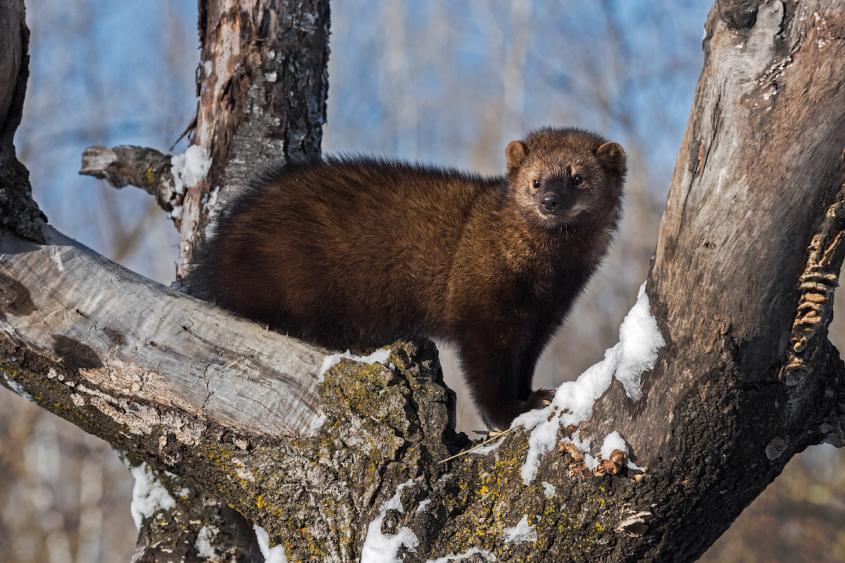News
Podcast
February 07, 2022
In this podcast, Dr. Krysten Schuler, a wildlife disease ecologist and co-director of the Cornell Wildlife Health Lab, and Jen Grauer, a Cornell PhD student, discuss their latest project to track and study wild moose, led by the New York State Department of Environmental Conservation.

Blog
February 04, 2022
Long before I was aware of the problem, professionals of veterinary medicine and pathology treated, rehabilitated, or necropsied ill, dying, or dead bald eagles. The wild birds had been presented for care after they ingested lead fragments from spent ammunition....

Blog
February 01, 2022
Cornell veterinary student Colleen Sorge, DVM '24, speaks with Cornell Wildlife Veterinarian Dr. Robin Radcliffe about his career in wildlife health and conservation.

January 27, 2022
The New York State Department of Environmental Conservation announced the start of a new moose research project in the Adirondack region. They will be working with partners, including Cornell, to assess moose health and population.

January 26, 2022
The bald eagle population has slowly recovered from the impact of a pesticide that nearly drove them to extinction decades ago. But now researchers at Cornell University have found that lead ammunition continues to hamper the resilience of these American icons.

January 23, 2022
As the number of American bald eagles has continued to soar in recent years, Cornell researchers are now warning the species’ reemergence is being threatened by lead poisoning from gun ammunition.

January 19, 2022
Bald eagle populations have slowly recovered from near devastation after the government banned DDT in 1972, but another ongoing issue has weakened that rebound – lead poisoning from gunshot ammunition.

For Your Information
January 18, 2022
Bald eagles are considered a recovery success in the U.S. after rebounding from near extirpation due to widespread use of DDT. Although abundances of bald eagles have increased since DDT was banned, other contaminants have remained in the environment with unknown influence on eagle population trends.

January 17, 2022
Environmental DNA techniques can detect a deadly virus in amphibian ponds, giving wildlife managers critical information about how to best protect vulnerable amphibian species.

January 03, 2022
The New York State Department of Environmental Conservation recently renewed the New York State Wildlife Health Program for $6.4 million over five years. This partnership has enabled Cornell to work with the state’s wildlife biologists on threats that affect all of New York's wildlife.
